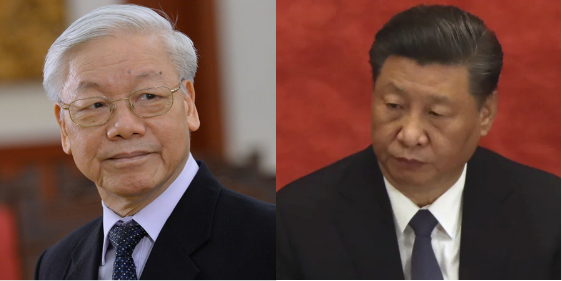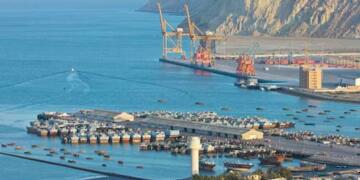After decades of Chinese belligerence against Vietnam in the South China Sea, tables are now turning against the paper dragon. The growing footprint of other Indo-Pacific powers in the disputed waterways is giving a lot of diplomatic and military leverage to Vietnam. Hanoi is becoming a lot more assertive in its dealings with Beijing- a case in point being Vietnam’s refusal to move towards a Code of Conduct due to China’s aggressive military drills in the region.
As per a South China Morning Post report, Vietnam on Thursday said that the military drills conducted this week by China in the South China Sea could derail negotiations for a South China Sea Code of Conduct. China has been desperate to finalise a maritime Code of Conduct ever since the US decided to play a more proactive role in the disputed waterways but it seems that Vietnam is weaponizing the Code of Conduct negotiations in order to keep China in check.
As such Vietnam is leveraging the role that outside powers are playing in the South China Sea. The US involvement in the region is directly aimed at Beijing and the US military is out there to support countries like Vietnam that are standing up to Chinese aggression. And as such not only the US, but the entire QUAD including India, Japan and Australia is rallying behind Vietnam and therefore an emboldened Hanoi is able to prevail over Beijing.
Vietnamese Foreign Ministry spokeswoman Le Thi Thu Hang said, “The resumption of code of conduct (COC) negotiations after a long pause because of the [coronavirus] pandemic is the priority of Asean countries and China.” She added that Vietnam shared that priority and looked forward to “concluding the COC in an effective, comprehensive way”, in line with international law.
But at the same time, the Vietnamese spokeswoman also made it clear that things cannot move forward given China’s recent military exercises along different parts of its coast, including two exercises near the disputed Paracel Islands.
The message from Vietnam is thus loud and clear- Beijing must respect Vietnamese sovereignty, for any effective Code of Conduct negotiations to take place. The Code of Conduct itself has been a contentious matter in the South China Sea region for the past two decades. Till now, the ASEAN wanted a Code of Conduct but Beijing, being the bully that it is, used to procrastinate negotiations for any maritime Code of Conduct. But now since the QUAD is backing the ASEAN, China is pushing for a Code of Conduct in the South China Sea.
Vietnam is also telling China that if Beijing doesn’t mend its way, Hanoi will always have other options. Indo-Pacific powers outside the South China Sea region are showing a lot more commitment towards the Vietnamese cause today, which is empowering it in an unprecedented manner. Take for example, India, which is almost ready to embrace iron brotherhood with Vietnam given the common Chinese security threat faced by both countries.
And Vietnam often uses this diplomatic leverage. Vietnamese Ambassador to India, Pham Sanh Chau, made a ‘courtesy call’ to India’s Foreign Secretary Harsh Shringla after China deployed its H-6 bomber to the Woody Island- the largest island in the Paracel Island chain. Chau went ahead to express his country’s desire for a “Strong Comprehensive Strategic Partnership” with India.
Similarly, Australia and Vietnam are already in agreement to keep Chinese expansionism in check within the South China Sea. And as it is, Japan’s new Prime Minister Yoshihide Suga is showing the intent to further encourage cooperation between Hanoi and Tokyo. Vietnam cannot really complain as it is getting unprecedented levels of help from the big Indo-Pacific powers outside the South China Sea region.
An emboldened Vietnam doesn’t have to have interactions with China in order to resolve the South China Sea disputes. Hanoi can dictate terms to Beijing before matters move to the negotiations table. At the end of the day, Vietnam would also want a maritime Code of Conduct in order to keep further Chinese transgressions at bay, but the Southeast Asian nation is ensuring that whatever is agreed is dictated by Hanoi and not by Beijing. Vietnam might have been victimised by the CCP in the past, but not anymore as Vietnam now has the capability of taking on China at a diplomatic level.



























